The Makioka Sisters Blu-ray Movie
HomeThe Makioka Sisters Blu-ray Movie 
細雪 / Sasame-yukiCriterion | 1983 | 141 min | Not rated | Jun 14, 2011
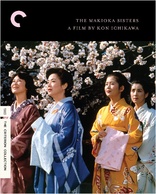
Movie rating
7.4 | / 10 |
Blu-ray rating
| Users | 4.5 | |
| Reviewer | 4.0 | |
| Overall | 4.2 |
Overview
The Makioka Sisters (1983)
The once-prominent Makioka family undergoes a decline over the years, partially as a result of the Allied Occupation during the 1940s. But no matter what fortune has in store, the four sisters always gather in Kyoto, Japan, to view the cherry blossoms, the ritual marking the changes in their lives from year to year. Right now the major crisis for them is finding a husband for Yukiko, the third eldest, so that the youngest sibling, Taeko, can get married herself.
Starring: Keiko Kishi, Yoshiko Sakuma, Sayuri Yoshinaga, Yűko Kotegawa, Ittoku KishibeDirector: Kon Ichikawa
| Foreign | Uncertain |
| Drama | Uncertain |
| Romance | Uncertain |
Specifications
Video
Video codec: MPEG-4 AVC
Video resolution: 1080p
Aspect ratio: 1.88:1
Original aspect ratio: 1.85:1
Audio
Japanese: LPCM Mono (48kHz, 24-bit)
Subtitles
English
Discs
50GB Blu-ray Disc
Single disc (1 BD)
Playback
Region A (locked)
Review
Rating summary
| Movie | 5.0 | |
| Video | 4.5 | |
| Audio | 4.5 | |
| Extras | 1.0 | |
| Overall | 4.0 |
The Makioka Sisters Blu-ray Movie Review
Reviewed by Dr. Svet Atanasov June 14, 2011Kon Ichikawa's "Sasame-yuki" a.k.a. "The Makioka Sisters" (1983) arrives on Blu-ray courtesy of Criterion. The only supplemental feature on the disc is the film's original theatrical trailer. The disc also arrives with a 18-page illustrated booklet containing an essay by film scholar Audie Bock. In Japanese, with optional English subtitles for the main feature. Region-A "locked".
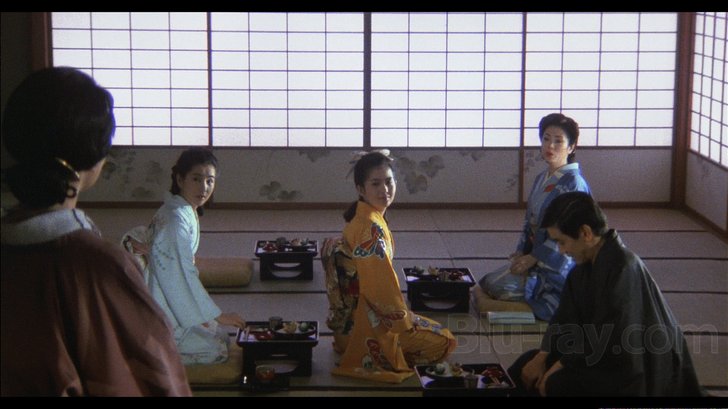
The Makiokas
Kyoto, 1938. The Makioka sisters have gathered for "hanami", a traditional custom of observing the beauty of flowers. The two eldest sisters, Tsuruko (Keiko Kishi, Rififi in Tokyo, Kwaidan) and Sachiko (Yoshiko Sakuma, Hell's Kitchen), both married, are concerned that the third sister, Yukiko (Sayuri Yoshinaga, The Grass-Cutters, The Crest of Man), the most conservative amongst them, is still single. This is a serious issue because the youngest and most progressive sister, Taeko (Yuko Kotegawa, Afternoon When Flowers Fell), cannot marry before Yukiko does.
Aside from growing impatient with Yukiko, Taeko also wishes to expand her doll making business, which is why she wants to have her inheritance before she becomes a housewife. Her official request creates a lot of tension between the sisters because the tradition demands that the money is used as her marriage dowry.
The entire family concentrates its efforts on finding Yukiko a husband as soon as possible, but none of the men she is introduced to in the following weeks impress her.
Meanwhile, Tsuruko’s husband, Tatsuo (Juzo Itami, Heat Wave Island, The Family Game), is offered a lucrative post in Tokyo. When he shares the news with Tsuruko, however, he is immediately reminded that the Makiokas roots are in Osaka, where the family has prospered during the years. Incredibly disappointed by his wife’s conservative attitude, Tatsuo begins pondering whether to turn down the promotion.
Teinosuke (Koji Ishizaka, Ohan, Dangerous Women), Sachiko’s husband, assists with the search process as much as he can, but as Yukiko quietly rejects one candidate after another, he slowly begins to realize that it would be best if she never meets the right man. He knows exactly why, but is too afraid to admit it to himself.
Based on Junichiro Tanizaki’s famous novel, Kon Ichikawa’s The Makioka Sisters is a beautiful and notably elegant film about the end of an era. It moves slowly, allowing the viewer to not only embrace each of the main characters, but also get a feel of the unusual atmosphere they share.
The different conflicts in the film are absolutely fascinating. Those between the Makioka sisters, for instance, highlight some of the difficult dilemmas the Japanese faced during and after WW2. While there is an obvious desire to respect various old traditions and customs, each of the sisters begins to realize that times are changing, and that it is inevitable that their lives will as well.
Tsuruko, who has acted as a mother for years, is convinced that the family must stay united, but feels guilty for confronting her loving husband, who could easily lose his job if he respects her wish to stay in Osaka. During the years, Sachiko has always trusted Tsuruko, but now she feels that her inexorable desire to see Yukiko and Taeko follow her steps is no longer appropriate. The quiet and reserved Yukiko does not want to marry a man to rebuild his life and become a housewife; she wants to share her life with the one, a special man she could love. The youngest sister, Taeko, the rebel in the family, has already decided that no matter how her sisters treat her or what various relatives would think of her, she is going to follow her heart and live her life the way she wants to.
The mini conflicts are all inspired by a massive shift in attitude, one that is closely linked to Japan’s gradual westernization and modernization. In the film, the process is brilliantly captured by Ichikawa, who, like the Makioka sisters, spent a good portion of his life in the beautiful city of Osaka.
*In 1984, The Makioka Sisters won Kinema Junpo Award for Best Supporting Actor (Jűzô Itami). During the same year, the film also won Best Art Direction Award (Shinobu Muraki) at the Mainichi Film Concours.
The Makioka Sisters Blu-ray Movie, Video Quality 
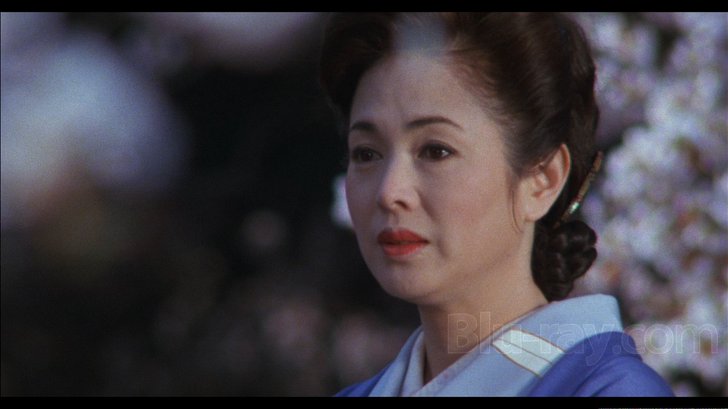
Presented in aspect ratio of 1.88:1, encoded with MPEG-4 AVC and granted a 1080p transfer, Kon Ichikawa's The Makioka Sisters arrives on Blu-ray courtesy of Criterion.
The following text appears inside the booklet provided with this Blu-ray disc:
"This new high-definition digital transfer was created on a C-Reality Datacine with Oliver wetgate processing from a 35mm low-contrast print struck from the original camera negative. Thousands of instances of dirt, debris, scratches, splices, warps, jitter, and flicker were manually removed using MTI's DRS system and Pixel Farm's PFClean system, while Digital Vision's DVNR system was used for small dirt, grain, and noise reduction.
Telecine supervisor: Maria Palazzola.
Telecine colorist: Lou Levinson/Prime Focus, Los Angeles."
Detail is consistently strong, even during the dark indoor scenes, while contrast levels are actually surprisingly good. The color-scheme is also well balanced, though I wonder whether some of the outdoor scenes might have looked slightly more vibrant when the film was shown theatrically. Edge-enhancement is not a serious issue of concern. Unsurprisingly, the image has that terrific natural thickness that we typically associate with unmanipulated transfers. There are no traces of excessive noise filtering either. The few minor spot corrections that have been performed actually enhance the high-definition transfer's organic qualities quite well. There are no heavy artifacting, halo and banding effects. (Note: This is a Region-A "locked" Blu-ray disc. Therefore, you must have a native Region-A or Region-Free PS3 or SA in order to access its content).
The Makioka Sisters Blu-ray Movie, Audio Quality 
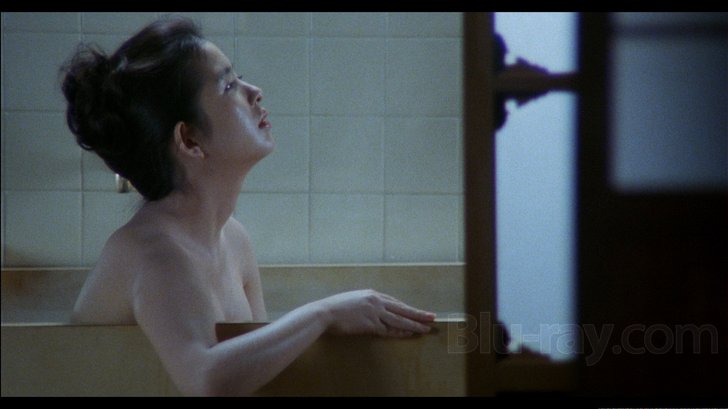
There is only one audio track on this Blu-ray disc: Japanese LPCM 1.0. For the record, Criterion have provided optional English subtitles for the main feature.
The following text appears inside the booklet provided with this Blu-ray disc:
"The monaural soundtrack was remastered at 24-bit from the optical track print. Clicks, thumps, hiss, and hum were manually removed using Pro Tools HD. Crackle was attenuated using AudioCube's integrated workstation."
I believe that the loseless audio track enhances the viewing experience as best as possible. Its dynamic amplitude is very limited, but there is depth and fluidity that are very easy to recognize and appreciate. Additionally, the audio is very well balanced - there are no dynamic fluctuations and distortions - and free of annoying pops, clicks, and background hiss.
The Makioka Sisters Blu-ray Movie, Special Features and Extras 
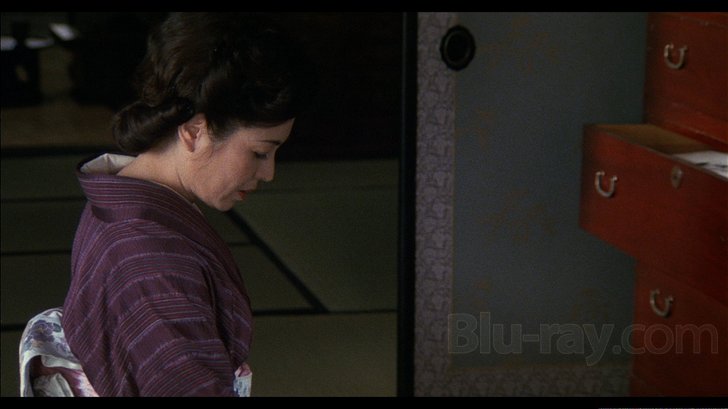
- Trailer - the original theatrical trailer for The Makioka Sisters. In Japanese, with optional English subtitles. (2 min, 1080p).
- Booklet - 18-page illustrated booklet containing Audie Bock's essay "Of Love and Money" (Audie Bock is the author of Japanese Film Directors and Mikio Naruse: A Master of the Japanese Cinema, as well as the translator of Akira Kurosawa's memoir, Something Like and Autobiography. She has taught Japanese cinema at colleges and universities around the United States and at the film school in Kawasaki, Japan, founded by Shohei Imamura).
The Makioka Sisters Blu-ray Movie, Overall Score and Recommendation 
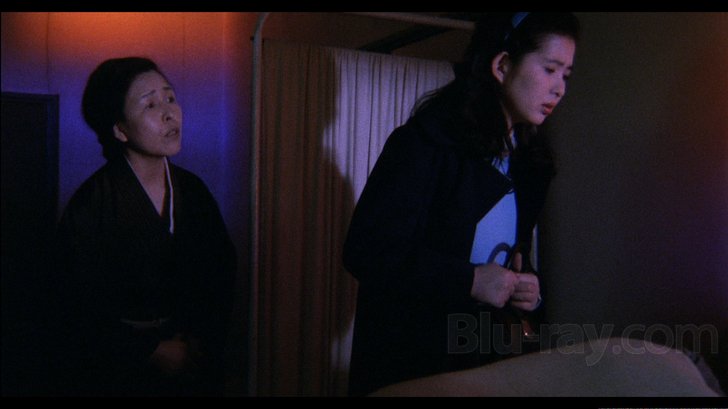
The Makioka Sisters is a wonderful, enormously moving film by one of the great masters of Japanese Cinema, Kon Ichikawa. Exquisitely lensed and terrifically acted, the film offers a fascinating portrait of a wealthy Japanese family, as well as a country in transition, during a time of massive socio-political changes. Despite the lack of substantial supplemental features, The Makioka Sisters is one of Criterion's best offerings this year. HIGHLY RECOMMENDED.
Similar titles
Similar titles you might also like

Still Walking
歩いても 歩いても / Aruitemo aruitemo
2008

The World
世界 / Shijie
2004

Ikiru
生きる
1952

Late Spring
晩春 | 4K Restoration
1949

Yi Yi
一一
2000

Taxi
2015

Aquarius
2016

Saraband
2003

The Rules of the Game 4K
La rčgle du jeu / 1959 Reconstructed Version
1939

Chungking Express 4K
重慶森林 / Chung Hing sam lam
1994

El Norte
The North
1983

People on Sunday
Menschen am Sonntag
1930

Good Bye Lenin!
2003

The Insect Woman
にっぽん昆虫記 / Nippon konchűki
1963

Secret Sunshine
밀양 / Milyang
2007

The Music Room
জলসাঘর / Jalsaghar
1958

The Ballad of Narayama
楢山節考 / Narayama bushikô
1958

Tokyo Story
東京物語 / Tôkyô monogatari
1953

Umberto D.
1952

Coming Home
归来 / Gui Lai
2014